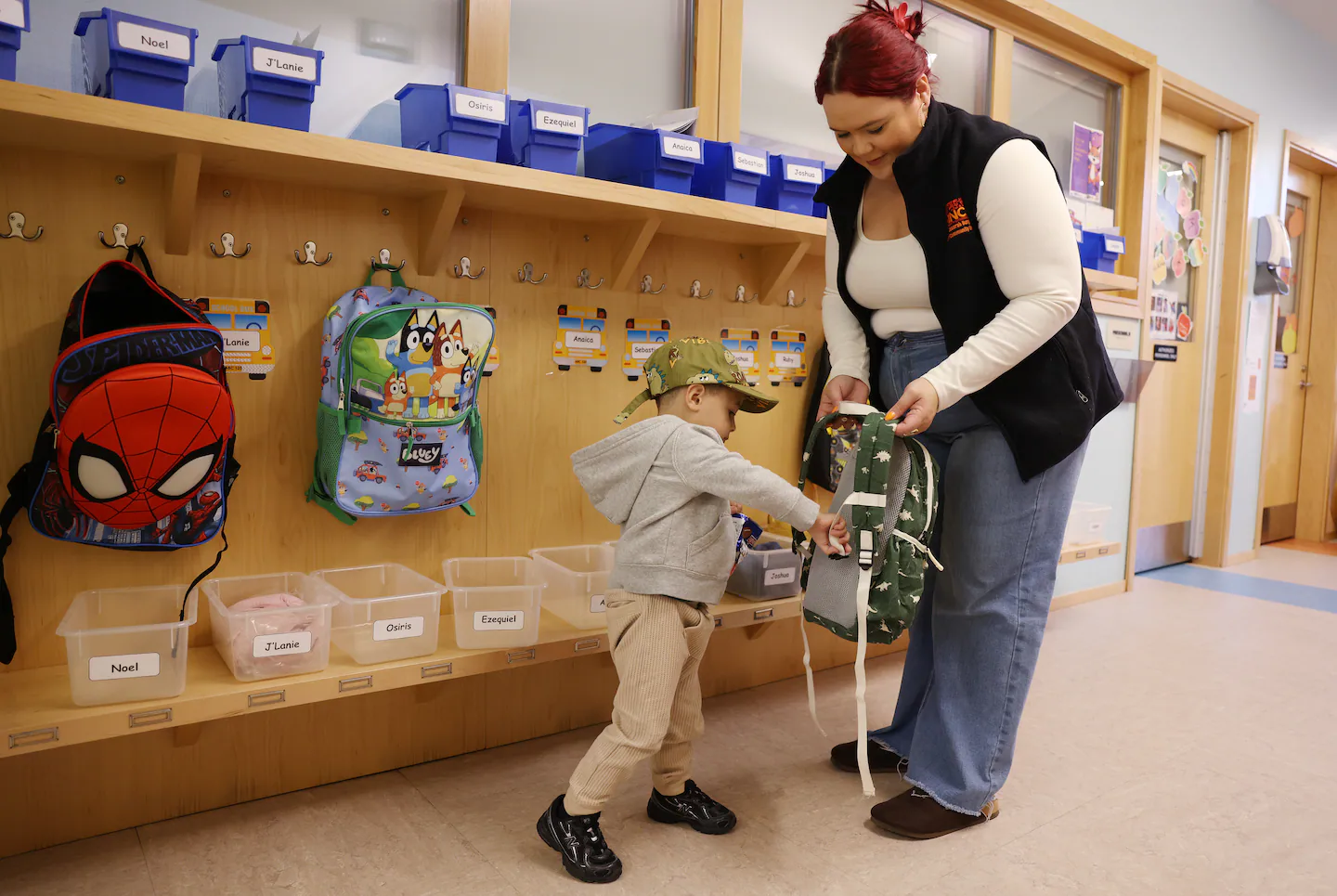Copyright The Boston Globe

And the federal government has yet to say how or if it will continue funding the National School Lunch Program, which serves more than 100 million free meals annually to Massachusetts elementary and secondary students, after October if the shutdown continues. The risks facing the three programs provide just a snapshot of the many ways the government shutdown could impact some of the state’s most vulnerable residents. If those programs close because of the shutdown, the impact will be severe on struggling families, said Nicole Blais, chief executive officer of Holyoke, Chicopee, Springfield Head Start. “We have lots of parents who are working, are going to school, so this would be a ripple effect in terms of how this could negatively impact our communities,” Blais said. As the shutdown rolls into its fourth week, Republicans and Democrats continue to blame each other. Democrats want to address health insurance costs before agreeing to reopen the government, while Republicans want to end the shutdown first. The impact is being felt across the state as furloughed workers go without pay, companies and universities lose grants, and many agencies stop providing services. For upcoming heating bills, Elizabeth Berube, executive director at Citizens for Citizens Inc. and a member of MASSCAP, two groups that work to combat poverty in Massachusetts, said funding for the the federal assistance program known as HEAP is typically included in the new budget at the start of the government’s fiscal year on Oct. 1. But with the shutdown, no money was allocated. MASSCAP helps people apply for HEAP and other assistance programs. The group is getting calls from people asking about the status of their applications for this winter. “We can tell someone, ‘We looked through your income, and you’re definitely income eligible for our program,’ ” she said. “ ‘However, there’s no funding for the program at this point — we can’t even give you $1.’ ” Berube said that if the shutdown continues, MASSCAP would reach out to state legislators to ask for funding support in an upcoming supplemental spending bill. The group has been operating using funds rolled over from last year, which will not last much longer, she said. “The federal government shutdown puts this critical safety-net program at risk,” Ed Augustus, secretary of the state’s Office of Housing and Livable Communities, which oversees HEAP, said in a statement. “We remain committed to serving households with heating emergencies. But we urge Congress and the president to quickly act to fund the federal government.” Berube worries that people will put themselves in danger if they cannot pay for their heat. “They use those little space heaters, or they they keep the heat low, and they’re just bundled up and freezing,” she said. “It really shouldn’t be like that. No one should have to live like that.” Blais, at Holyoke, Chicopee, Springfield (HCS) Head Start, said her team is deep in contingency planning to keep classrooms running if federal money remains on hold. “We’re planning for the worst but hoping for the best,” she said. Many employees in the federal Office of Head Start were furloughed, and HCS has yet to receive its annual notice of award, Blais said. The delay could affect payroll, transportation, and daily meals for more than 500 children from birth to age 5 across 11 centers in Western Massachusetts, and over 200 staff members — all supported by about $16 million in annual federal funding. Typically more than 80 percent of funding for the programs comes from the federal government, Massachusetts Head Start Association‘s executive director Michelle Haimowitz said in a statement. During the shutdown, programs will be “using every available state dollar to remain open as long as possible,” she said. For families, the stakes are immediate. Jasarah Burgos, a Springfield mother and HCS policy council chair, said Head Start is “more than child care — it’s a wraparound service for the whole family.” Her 3-year-old son, Sebastian, isn’t in a full-day classroom yet, so she picks him up at 2 p.m. and arranges coverage around her job as a nonprofit community engagement chief. “I thrive in stability,” she said. “Not knowing what’s going to happen keeps me up at night. I’m the primary income in my home.” The loss of health services is also a concern, Burgos said. Sebastian has multiple allergies and asthma, and on-site nurses and a nutritionist give her confidence he’s safe during the day. “Leaving him with family isn’t the same as having medical support in the classroom,” she said. For now, Blais said, it’s “business as usual” in classrooms while her team combs through budgets to focus on essentials. Nationally, Head Start leaders warn that the shutdown’s effects are starting to surface. Tommy Sheridan, deputy director of the National Head Start Association, said a Florida Head Start program was among those forced to close its doors early next week. More closures are likely in the coming weeks as programs run out of federal funds, and others may soon follow, he said. “Time is running out,” Sheridan said. “Children and families should never be put at risk because of political gridlock.” Blais noted that Head Start is supposed to be celebrating its 60th year in operation. “It’s not the birthday present we expected — but we’ll persevere,“ she said. ”That’s what we do.” For older children enrolled in elementary and secondary schools, the lunch program helps provide free meals to students in schools across the nation, with funding from the US Department of Agriculture given to the states, which then allocate the money. The department has been supporting the program during the shutdown with leftover funds, but could run out of money in November, according to Alexis Bylander, director of child nutrition programs & policy at the nonprofit Food Research & Action Center based in Washington, D.C. “To date, schools have continued to run school meal operations during the government shutdown,” Bylander wrote in an email. But the government’s “contingency plan does not specifically mention meals served in November and beyond.” School food service operators are “looking for assurance” that they will be reimbursed for serving students during the shutdown, and that there will “not be any lapse in program operations,” Bylander added. More than 29 million students nationwide benefited from the program during the 2023-24 school year. In Massachusetts, school lunches are free to all 585,000 daily participants. The state’s Department of Elementary and Secondary Education pays about 30 percent of the cost, with federal funding covering the rest. The department only received federal reimbursements for meals through October, instead of December, as occurred in prior years, a DESE representative said. “President Trump and the Republicans’ shutdown is threatening to make children go hungry at school by taking away their lunches,” Governor Maura Healey said in a statement. “They need to do their jobs and reopen the government.”



